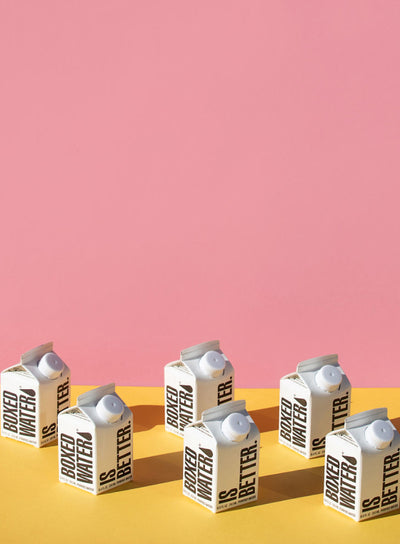“Let’s stop for a quick coffee.”
It’s a phrase you likely say or hear on a weekly basis. But have you ever thought about the environmental impact that a quick coffee visit can have on our planet? For as much as we love them, there’s no denying that coffee shops can create an enormous amount of waste. You might be surprised to learn that coffee production creates over 20 million tons of waste globally per year. In the U.S. alone, we discard more than 50 billion single-use coffee cups with lids every year.
Most specialty coffee shops obsess over brewing high-quality, ethically-sourced coffee that stands out from competitors. But that’s a tall order when you consider the rise in trendy local coffee shops popping up in every state. Now, many shops are realizing the need to look beyond the brew to find ways to attract customers. Prioritizing environment, social and governance (ESG) has been a key focus with consumers shifting their purchase behavior towards being more sustainably conscious.

Odeko is an all-in-one operations partner for local cafés and eateries. One of Odeko’s main focuses is helping businesses reduce their carbon footprint.
“Today, it feels as though the younger generations are hyper-aware of the damage that plastic pollution is doing to our planet, and are actively taking steps to make a difference,” said Lauren Pelletier, Vice President of Engagement for Odeko. “Given coffee’s direct ties to the planet as a natural resource, coffee shops care greatly about the environment and their role in the larger ecosystem.”
She added that small businesses need partners that help turn their dreams into a reality.
[mobile-adblock]
“It’s something that we hope to be a facilitator of within our industry,” Pelletier said. “Our shops and their customers genuinely care about bettering their environment, and they have picked us to be their agents.”
Surprisingly, just by providing middle-of-the-night delivery service, Odeko is able to reduce CO2 emissions.
“To put that into perspective, in New York City there are over 1,000 independent coffee shops, meaning local deliveries alone would contribute (around) 100 tons of CO2 to our environment annually. By operating our fleet of delivery drivers in the middle of the night, we not only experience less traffic, but are able to be more efficient, resulting in less CO2 in the atmosphere and a smoother restocking process for your favorite cafés.”
And with all of that waste we were talking about earlier that coffee shops produce, many owners have swapped out single-use plastics for more sustainable options.

“We use 100% biodegradable trash bags, cups, straws and lids in all of our cafes,” said Andrew Heppner, founder of Populace Coffee. “Coffee packaging is majority made from plastic and is significantly cheaper than the biodegradable or compostable packaging option. All we can do is encourage more companies that are starting out or already established, that it is 100 percent OK to spend the extra costs to invest in the future of our planet.”
Many cafes are also taking things full-circle by engaging their customers with local community efforts with recycling and reuse programs.
“As a whole we see a lot of consumers caring about this,” said Jackie Tantimonaco, Marketing Lead at The Nitro Cart, a cold-brew coffee business in Rhode Island. “Nitro composts, we sell glass straws in an effort to eliminate plastic ones, we offer discounts to our customers who bring in reusables, we sell mason jars for people to use as to-go cups, and we source our ingredients locally.”

Interested in eliminating single-use plastic bottles from your cafe or coffee shop to match your sustainable coffee efforts? Boxed Water cartons are 92% plant-based, 100% recyclable and reusable. Join our wholesale program for exclusive discounts.

